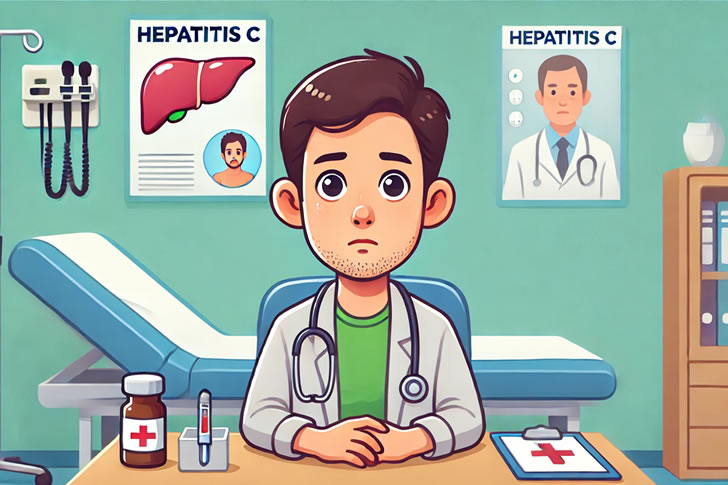Unraveling the Mystery of Hepatitis C Signs: What Experts Want You to Know
Hepatitis C is a liver infection caused by the hepatitis C virus (HCV) that can lead to serious liver damage if left untreated. It’s often called the “silent epidemic” because many people don’t know they have it until liver damage shows up, sometimes decades later. This article aims to demystify the signs of Hepatitis C and provide expert insights into its diagnosis and treatment.

Understanding Hepatitis C and Its Importance
Hepatitis C primarily spreads through contact with infected blood. It can develop into a chronic infection, leading to serious liver damage over time. Early detection and treatment are vital to prevent long-term health issues.
Common Signs of Hepatitis C
Many individuals with hepatitis C do not exhibit symptoms until the virus has caused significant liver damage. However, some signs can indicate the presence of HCV:
| Sign | Common Features |
|---|---|
| Fatigue | Often the first and most common symptom. |
| Mild abdominal pain | Especially in the liver area. |
| Jaundice | Yellowing of the skin and eyes. |
| Dark urine | Typically a sign of liver issues. |
| Itchy skin | Can be a symptom of jaundice. |
| Muscle and joint pain | Common in chronic cases. |
| Fever | Usually mild and transient. |
| Loss of appetite | Often accompanies other digestive issues. |
| Nausea and vomiting | Can occur when the liver is stressed. |
| Bruising easily | Due to liver not producing enough clotting factors. |
Frequently Asked Questions (FAQ)
Q: How is hepatitis C transmitted?
A: Hepatitis C is primarily transmitted through blood-to-blood contact, such as sharing needles, poor sterilization of medical equipment, and, less commonly, through sexual contact.
Q: Can hepatitis C be cured?
A: Yes, with the recent advancements in antiviral medications, hepatitis C can now be cured in most cases.
Q: Is hepatitis C contagious?
A: Yes, it can be spread through blood, but it is not transmitted through casual contact, food, or water.
Treatment Options for Hepatitis C
Treatment for hepatitis C has evolved significantly over the past decade, moving from interferon-based therapies, which had numerous side effects, to direct-acting antiviral agents (DAAs) that offer shorter treatment times and higher cure rates. Here is a table highlighting different treatment options:
| Treatment Method | Price Range (USD) | Treatment Duration | Key Features |
|---|---|---|---|
| Pegylated interferon and Ribavirin | $15,000 – $30,000 | 24 to 48 weeks | Used for genotypes 2 and 3, less common now. |
| Sofosbuvir (Sovaldi) | $84,000 for course | 12 weeks | Highly effective for genotype 1. |
| Ledipasvir/Sofosbuvir (Harvoni) | $94,500 for course | 8 to 24 weeks | Effective for treating most HCV genotypes. |
| Daclatasvir (Daklinza) | $63,000 for course | 12 weeks | Used in combination with sofosbuvir. |
| Elbasvir/Grazoprevir (Zepatier) | $54,600 for course | 12 to 16 weeks | Effective for genotypes 1 and 4. |
| Velpatasvir/Sofosbuvir (Epclusa) | $74,760 for course | 12 weeks | Covers all genotypes; used without ribavirin. |
| Glecaprevir/Pibrentasvir (Mavyret) | $26,400 for course | 8 weeks | Newest treatment, covers all genotypes. |
| Ombitasvir/Paritaprevir/Ritonavir | $83,319 for course | 12 weeks | Used for specific patient groups. |
| Simeprevir (Olysio) | $66,360 for course | 12 weeks | Often combined with sofosbuvir. |
| Sofosbuvir/Velpatasvir/Voxilaprevir | $75,000 for course | 12 weeks | Used for patients who have failed prior DAA therapies. |
Expert Recommendations on Managing Hepatitis C
Experts recommend the following for individuals diagnosed with or at risk of Hepatitis C:
- Regular Monitoring: Frequent liver function tests and monitoring are crucial.
- Healthy Lifestyle: Limit alcohol, avoid illicit drug use, and maintain a healthy diet.
- Vaccinations: Get vaccinated against Hepatitis A and B, as co-infections can worsen liver health.
Conclusion
Understanding the signs of hepatitis C and the available treatment options is crucial for managing this disease effectively. Advances in medical research have significantly improved the prognosis for those infected with the hepatitis C virus, turning what was once a potentially fatal disease into a curable condition.
References
- Centers for Disease Control and Prevention (CDC)
- World Health Organization (WHO)
- American Liver Foundation
These sources provide comprehensive information on hepatitis C, including symptoms, transmission, and treatment options, backed by the latest research and health guidelines.







Recent Comments